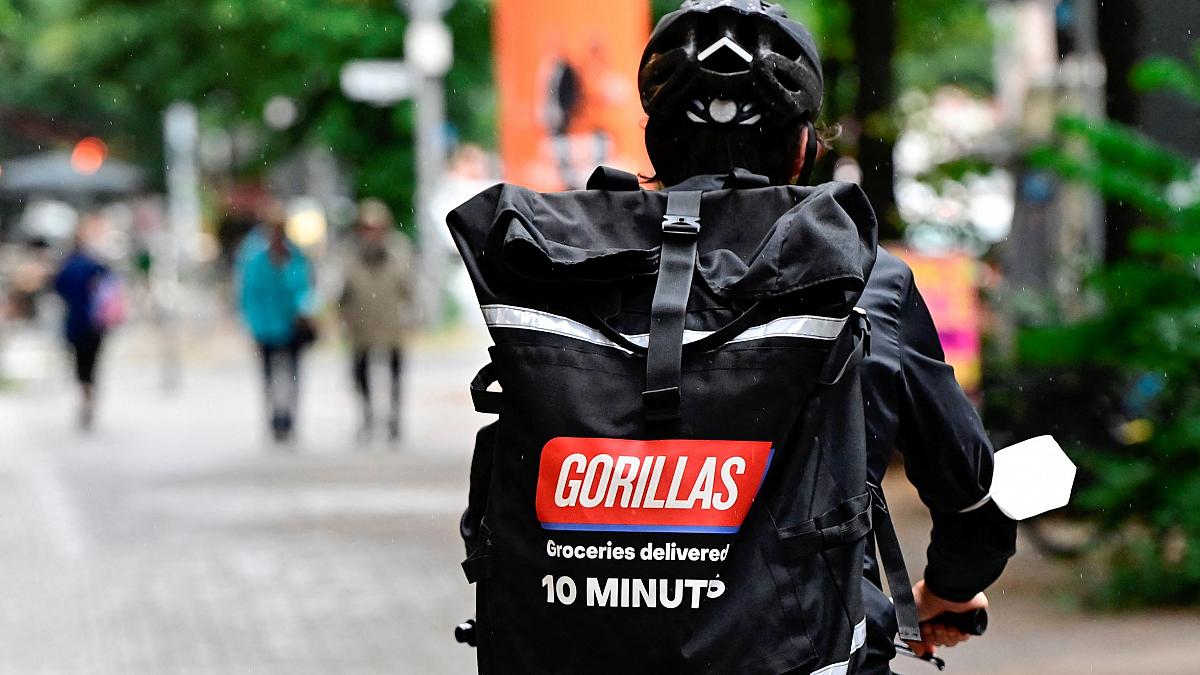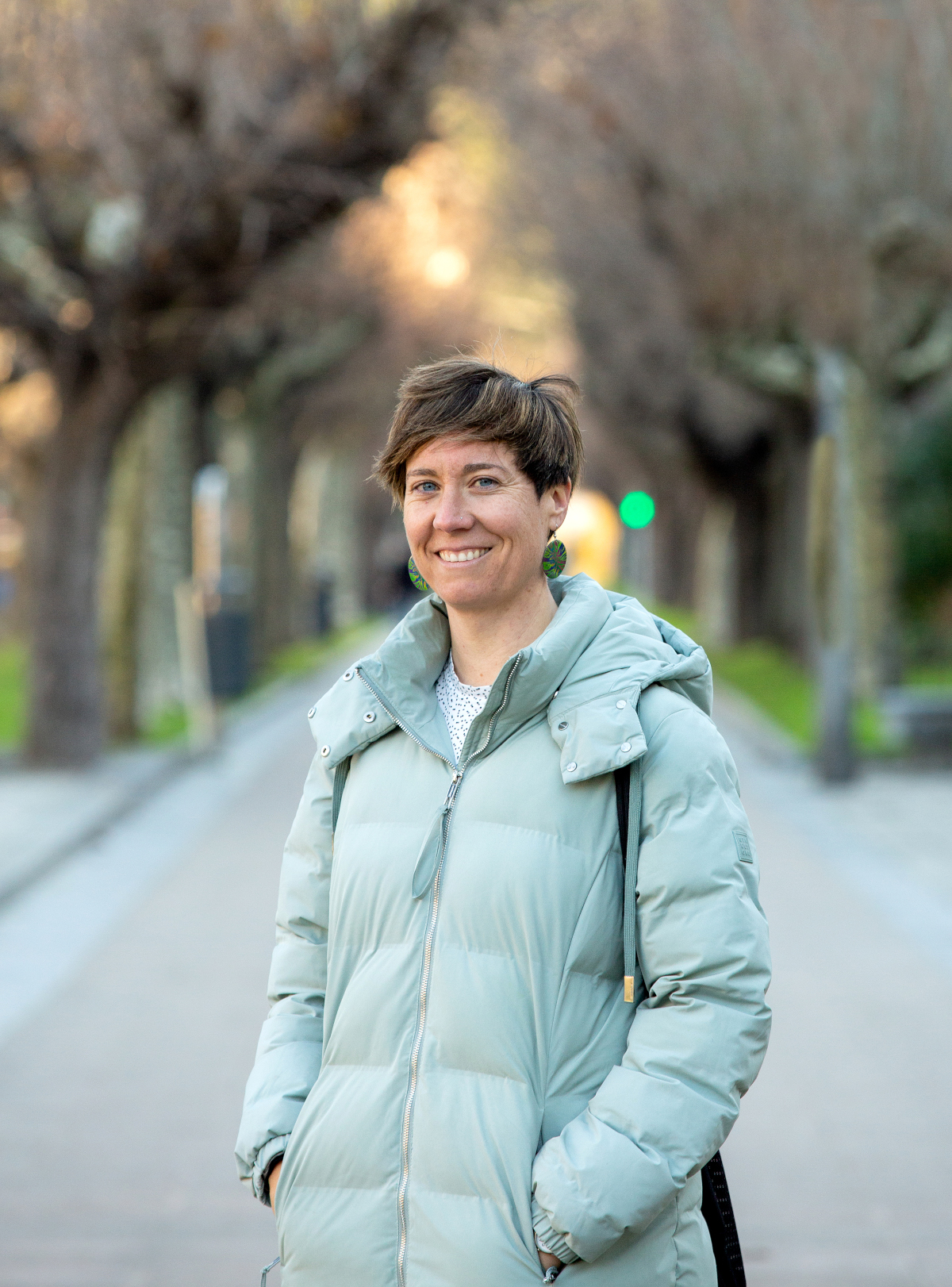COVID-19: Ten reasons to explain how we've come to this situation
- This article has been published by Ignacio López-Goñi of the University of Navarra and Juan Ignacio Pérez Iglesias of the University of the Basque Country in the medium The Conversation. We've brought it translated into Basque.
During the months of March, April and May, the Spanish State was one of the countries with the most cases of COVID-19 and more deaths, in proportion to the number of inhabitants. At the moment, the Spanish State is at the forefront of the infections and deaths recorded in Europe in the last two weeks. There is no doubt that we are in the second wave of the pandemic. The situation is very worrying.
In recent months, two articles have been published in the media The Lancet and The Lancet Publich Health on the need to independently assess the Spanish State's response to the COVID-19 crisis. Why is the Spanish state in such a bad situation? What has been done to lead the ranking of countries with worse data? What have we failed in?
Pandemics are very difficult to control, otherwise they would not be a pandemic. The degree of uncertainty has been very high and, therefore, it has not been easy to make decisions. That is why, although there are those responsible for what has happened, we do not want to make a posteriori criticisms to seek guilty parties, but rather to assess what has happened to prepare for the waves of the future and not to happen again.
1. Lack of leadership
In times of crisis, leadership is a fundamental element. Leaders must build bridges, reach consensus, integrate people and groups to achieve a common goal. By acting with flexibility, the leader must surround himself with his best colleagues, whatever his ideology, as the goal is the health, safety and well-being of all. The Spanish State has not had that leadership in this crisis.
2nd Lack of coordination
The lack of coordination has been noticeable between the central government and the autonomous communities. From the total centralization of the state of alarm, we have moved on to the situation of doing what we can. The viruses do not know the borders and, therefore, in a decentralised situation like ours, the principle of subsidiarity and the necessary inter-administrative coordination (state, regional and municipal) must be intelligently combined.
3. The role of the wrong science
To make solid base decisions, it is necessary to have the best available knowledge. Therefore, effective leadership requires that information from a multidisciplinary scientific committee be received for all decisions. This does not mean that only the scientific elements are taken into account; others have to be taken into account.
But the ultimate responsibility must lie with the decision-maker, that is to say with the competent authorities. Many policy makers at different levels have been interested in combining possible scientific support for their decisions and considerations of a political and economic nature. That confusion must be eliminated, the best guarantee being that the reports on which the decisions are based are public and available to all.
4. Lack of data
To have the best available knowledge, of course, it is necessary to have data that account for the situation at every moment. But in these months, data management has been chaotic. Without clear metrics, indicators and thresholds, such a crisis cannot be ruled out. Coordination at this point has also been very poor.
It is essential to know the number of people dead, the number of cases with symptoms, percentages of positive CRP, other tests, types of contagion, number of explorers, primary care data, hospitalizations, severity by age, sex, origin, mobility, etc.... and all these data should be public, as the public study is the best guarantee of use of this data.
5. Political debate
The pandemic is not a political problem, but a community problem. But from the very beginning, it has been used as a weapon of mutual firing in the fighting between the parties. And in that confrontation, the virus has been the only beneficiary. Political crispation fuels polarization and, as a result, citizenship aligns with its own and refuses to critically evaluate its activities.
Furthermore, there is increasing confusion about the appropriateness of the proposed measures or their possible alternatives, which ends up weakening the credibility of those who attribute the authorship of the measures (the experts) and, of course, also of the political decision-makers. The seriousness of the situation requires the achievement of a broad-based State Pact in the fields of health, research, education and economics.
6. Lack of pedagogy and transparency
Understanding the reasons for these measures is essential for citizens to take certain measures, especially if they involve restrictions on freedoms or high costs. To do this, it is necessary to explain, on the one hand, the scientific basis and, on the other hand, the definition of the goods that are intended to be protected.
Despite the long and numerous press conferences, the explanations have been confusing and, on more than one occasion, have given the opportunity to think that they were not telling the truth. Especially when there have been contradictions between messages issued at different times. Let us not forget that truth brings trust and helps to endure. Communication should take people's fears and concerns into account in order to be able to respond to those emotions. Otherwise, the infodemia is fed, which results in the feeding of threats and negationism.
7. Quick de-escalation
The confinement had a devastating effect, not only on the economy, but also on the mood of the population and on mental health. In addition to saving life, life had to be saved. However, the de-escalation process was very rapid. The proximity of the summer season led to the prioritisation of leisure, holidays and tourism, without taking the necessary measures (border control and quarantine, for example).
For the lifting of the confinement it was necessary, first of all, to grant the following conditions: Ensure a robust and safe health system, have effective and highly implanted diagnostic systems and have an effective outbreak detection, tracing and isolation system.
8. Slow response and lack of solidity
Whenever there have been outbreaks or a dangerous growth in the incidence of COVID-19, the reaction has been delayed and, when it has occurred, shy. The reason for the delay is surely the desire not to damage the economic fabric, but paradoxically this form of action has aggravated the economic situation itself.
On the other hand, bureaucracy and the regulatory framework have led to postponing the implementation of measures that were to be implemented too late. It is necessary to provide for the legal and administrative instruments necessary for the adoption of urgent decisions in the common interest.
9. Weakened health system
The cutbacks following the 2008 crisis weakened the health system. During the state of alarm, the focus was placed on the beds and ICU of the hospital. But the shortages of care staff have been obvious. It is therefore necessary to strengthen the team of health professionals. It is now essential to focus attention on public health and primary care in order to reduce the number of people to be hospitalized.
Particular attention should be paid to paediatric and geriatric services. This requires an increase in the number of employees and in the shortest possible time. A health system stretched to the border has consequences that go far beyond COVID-19: delays in other diagnoses and treatments, altered child vaccination schedules, etc. and, consequently, loss of health and lives.
10. Browser Shortage
The diagnostic, scanning and isolation system has not been sufficient and is not yet sufficient. In proportion to the number of inhabitants, we have had far fewer explorers than other European countries. We face one of the most perverse and difficult risks to control: a new virus, without previous immunity for the population, of very easy respiratory transmission, which can be transmitted before symptoms appear, even through people without symptoms. You can't control the pandemic without knowing where the virus is. Under these conditions, diagnosing, detecting infected people, exploring contacts and isolating potential outbreaks are critical to curbing the spread of the pandemic.
On the contrary, in the assembly of proper diagnostic and tracking equipment, there has been neglect. Some autonomous communities have requested volunteers for this activity and others have finally come to the Army. The Radar COVID-19 mobile app has arrived late and is not yet fully implemented throughout the state.
On time of direction
Nothing I have just said can exempt individuals from any responsibility. But personal conduct, although worthy of reproach, is hardly regulated by administrative decisions. What happened in Spain in the summer of 2020 has been a great collective failure. We are in time to correct the course and lower the curve without unacceptably economic or social cost. It is in everyone’s hands, but, above all, those who have political responsibility.
Pandemiaren eragina indarkeria matxistan azterketa kaleratu berri du Espainiako Gobernuak. Bertan ondorioztatu dute eraildako emakume kopurua gutxitu egin dela, hauek kontrolatuta eduki dituzten denbora gehitu izanaren ondorioz. Baina emakumeen suizidioak gizonenak baino gehiago... [+]
Merkatura ateratzear den Hipra txertoari patenteak kendu diezazkiola eskatu diote hogei erakundek Espainiako Gobernuari. Izan ere, Kataluniako multinazional honek COVID-19aren aurkako txertoa egiteko entsegu klinikoetarako diru publikotik gutxienez 15 milioi euro jaso ditu.
Nafarroako Gobernuak bart gauerditik aurrera indargabetu ditu COVID-19aren aurkako neurri murriztaile gehienak. Kalean eta ikastetxeetako patioetan ez da derrigorrean maskararik erabili beharko, gaueko aisialdiak eta ostalaritzak pandemia aurreko ordutegiak berreskuratuko... [+]
"Osasun Sailaren immobilismoaren eta konponbide ezaren aurrean", otsailaren 25ean greba deitu dute lehen arretan ELA, SATSE, LAB, CCOO eta UGT sindikatuek eta otsailaren 28an Osakidetzako esparru guztietan. Horrez gain, otsailaren 26an manifestazioak egingo dituzte... [+]
Chop! There it comes again, I've felt in my chest early, this puncture is rare.
Chop! I've gently rubbed the part of my heart above the jersey. To see if it happens, I have already said it under, so no one can hear it. At present, care must be taken to control what you are going... [+]
La Bogue da Frantziako Limousin (okzitanieraz Limosin) eskualdeko hedabide alternatiboa. Kolektibo autonomo batek kudeatua, boluntarioek egina eta militantea, bere burua kokatzen du mugimendu anti-autoritarioaren baitan. Bertan agerturiko artikulua itzuli dugu euskarara.
“Proba bat egin ostean, COVID-19an positibo eman dut. Ondo nago, sintoma arinekin. Hurrengo egunetarako aurreikusitako agenda publikoa atzeratu eta konfinamendutik lanean segituko dut”. Kendu agenda publikoaren zera hori erditik, eta edonorenak izan zitezkeen... [+]
Igande eguerdian milaka lagun atera dira Donostia, Bilbo eta Gasteizko kaleetara gehiengo sindikalak deituta, kalitatezko osasun publikoaren alde eta Lehen Arreta jasaten ari den kolapsoaren aurka. Oso gogor mintzatu dira Iñigo Urkullu buru duen Jaurlaritza osasun... [+]
Osakidetzaren azken protokoloak dio positibo baten kontaktu estua izanagatik COVID-19a azken 180 egunetan pasatu duenak, txertatuta egon edo ez, ez duela etxean berrogeialdirik egin beharrik, baldin eta ez badauka sintomarik.
Txertoaren hirugarren dosia abian da herrialde aberatsetan eta laugarren dosia ere ezarriko zaie arrisku taldekoei. Denborarekin txertoek eragindako antigorputzak galdu egiten dira, eta horiek gehitzeko errefortzu dosiak jartzea da gobernuen estrategia. Baina txertoen alde... [+]
The way science becomes public policy is governed by political and economic calculations, as well as by the moral and ideological commitments of politicians, parties and advisers.” Sociologist Jana Bacevic said this in April 2020 at The Guardian.
We have all been able to see... [+]























